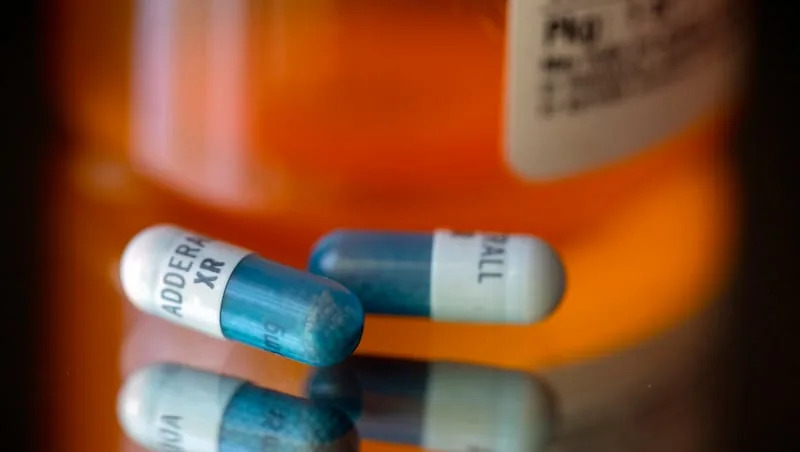High doses of drugs used to treat ADHD can cause psychosis: Study

Use of stimulants to treat attention deficit/hyperactivity disorder (ADHD) have grown, especially since the pandemic. But a study of adult emergency department admissions at a Mass General Brigham hospital suggests caution might be in order when it comes to the dose.
Those taking high doses of amphetamine — a key ingredient in some ADHD medications, including Adderall — had five-fold higher risk of developing psychosis or mania, according to Mass General researchers at McLean Hospital. They didn’t find a similar risk with methylphenidate (Ritalin) use.
The findings were published in the American Journal of Psychiatry this week.
Those with past-month prescription amphetamine use were more likely to have new-onset psychosis or mania than those who hadn’t used amphetamines in the past month, they found. The risk was greatest for those taking at least 40 milligrams of dextroamphetamine (equivalent to 40 milligrams of Adderall).
The finding isn’t entirely new; other research has linked stimulants to psychosis and mania risk, but the impact of dosage hasn’t been part of previous findings.
“Stimulant medications don’t have an upper dose limit on their labels, and our results show that it is clear that dose is a factor in psychosis risk and should be a chief consideration when prescribing stimulants,” said lead study author Dr. Lauren Moran, a pharmacoepidemiology researcher at McLean Hospital, in a written statement. “This is a rare but serious side effect that should be monitored by both patients and their doctors whenever these medications are prescribed.”
About the study
Moran said that as an inpatient psychiatrist, she and her colleagues saw patients having a first episode of psychosis after being prescribes high stimulant doses. That sparked interest for the study.
The study included 1,374 case subjects, ages 16 to 35, who were hospitalized at McLean Hospital for psychosis or mania between 2005 and 2019, as well as 2,748 control subjects who were hospitalized for a different psychiatric reason, like depression or anxiety. Psychosis and schizophrenia typically first occur between ages 16 and 35, hence the age selection. In the study, they also accounted for any substance use and other factors that might indicate a cause for psychosis or mania other than the stimulant use.
“While the study does not prove causality, the researchers note there is a plausible biological mechanism in neurobiological changes that include a release of higher levels of the neurotransmitter dopamine from amphetamines, that parallel dopaminergic changes observed in psychosis,” per the news release
They did note challenges and limitations. Not all medical records are consistent. And location could have made a difference: Findings from a psychiatric hospital near Boston that sees may patients with psychosis might not be generalizable to other locations.
Moran said the study shouldn’t cause alarm, but rather more care when prescribing the medications, especially for those who may have risk factors for mania or psychosis. And she noted that the evidence is not strong that high doses are more effective than lower doses.
The researchers concluded that “although use of hospitalized control subjects excludes individuals with less severe disease, leading to selection bias, the study results suggest that caution should be exercised when prescribing high doses of amphetamines, with regular screening for symptoms of psychosis or mania.”


